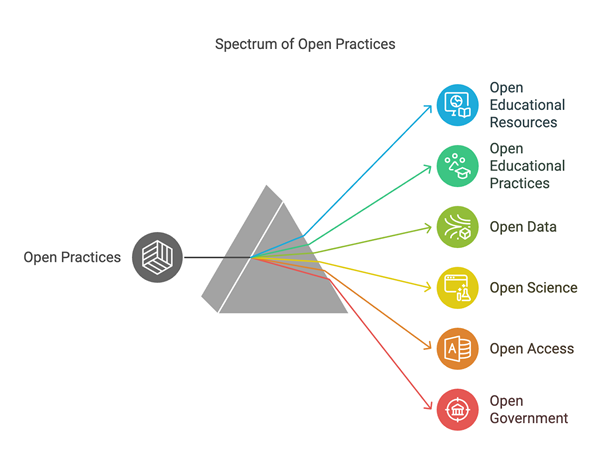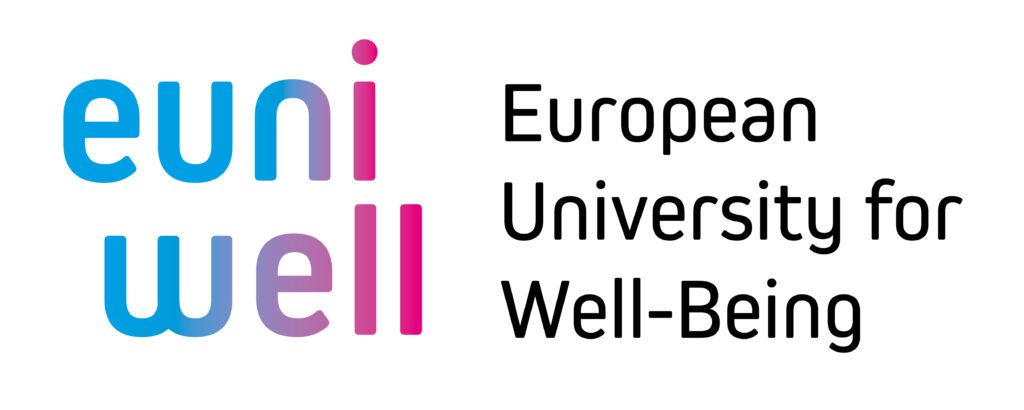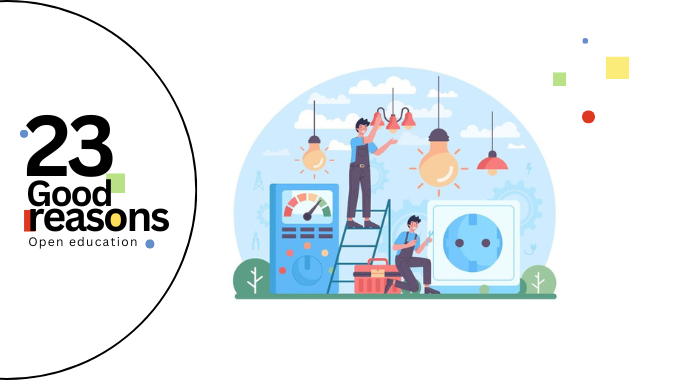Javiera Atenas is a Senior Lecturer at the University of Suffolk. She leads the postgraduate certificate in academic practices and data analysis and visualisation for social scientists. Her research focuses in developing critical data literacies amongst academics and supporting the development of open education, open data and science policies as well as building capacities in these areas.
The university’s role in society is not just about developing professionals but to foster democracy, citizenship, participation and criticality. The value of open practices and infrastructures in the Higher Education Sector can help develop a more sustainable and resilient educational ecosystem. Open Practices, that range from producing and adapting open educational resources (OER), using open data, use co-creation through open science approaches, publish in open access and adhere to open governance models provide a kaleidoscope of democratic yet critical practices to enhance education and participation in society.

Open Practices—including OER, Open Educational Practices (OEP), Open Data, Open Science, Open Access, and Open Government—collectively function as digital public goods, ensuring that knowledge, research, and education remain freely accessible and sustainable for global benefit. By fostering a culture of transparency, collaboration, and adaptability, these practices contribute to more resilient and equitable education systems that can withstand disruptions, whether from pandemics, climate crises, or the rapid rise of AI. OER and OEP enable educators and students to co-create, share, and adapt learning materials, while open data and open science provide opportunities for real-world problem-solving and open access makes knowledge democratic to inform public decision-making while Open governance facilitates active participation , making higher education a driver of inclusive social innovation. Through these interconnected open practices, universities can strengthen civic engagement, empower marginalised communities, and promote sustainable and participatory learning ecosystems.
Open educational practices enable peer mentorship and knowledge exchange on AI ethics, bias, and societal impact, while open data and science provide access to transparent AI research and methodologies. Open governance fosters public participation in AI policy-making, ensuring that AI development aligns with human rights and democratic values. Furthermore, as AI increasingly transforms education and society, open approaches play a critical role in developing AI literacies that equip learners with the skills to critically engage with, assess, and ethically apply AI technologies. By embedding critical AI literacy into curricula using open resources, the higher education sector can empower students not only to use AI responsibly but also to contribute to its ethical development, ensuring that AI remains a tool for social good rather than an instrument of inequality or misinformation.
Sustainable approaches in higher education focus on creating long-term, inclusive, and equitable learning environments that prepare students for lifelong learning and societal engagement, and here Open Practices play a critical role in strengthening teaching and assessment methodologies, advancing digital literacies, and promoting social participation. For example, by integrating OER, educators can design flexible and inclusive curricula, making teaching and learning more relevant to local and global challenges, while reducing reliance on commercial textbooks, contributing to educational sustainability, ensuring that learning remains affordable and accessible.
OEP promotes collaboration, inclusivity, and active participation. By engaging in peer mentorship, students and educators can co-construct knowledge, developing critical thinking and problem-solving skills. Open assessment, such as peer review and real-world challenges, prepare students for professional and social environments by fostering accountability and critical reflection. Knowledge exchange and participation in communities of practice help bridge the gap between academia and society, ensuring that learning remains dynamic and responsive.
The use of open data enhances digital literacy by enabling students to analyse, interpret, and apply real-world datasets in their fields of study, promoting evidence-based learning, where students engage in hands-on data analysis, fostering critical engagement with information and social participation, which are strengthened when collaborating with policymakers, journalists, and civic organisations to use data for public good, helping communities respond effectively to emerging challenges. Open science promotes transparency and collaboration in research-based activities by cultivating a culture of inquiry, encouraging learners to contribute to and critique knowledge production. Also, participation in Citizen science initiatives further bridge the gap between academia and society, promoting democratic engagement with scientific knowledge, enabling rapid knowledge-sharing and global collaboration.
Open access ensures that scholarly research is freely available to educators, students, and the public, breaking down barriers to knowledge, increasing transparency through constructive, community-driven evaluation, strengthening social participation in research by supporting evidence-informed decision-making on pressing global issues. Finally, Open government practices create opportunities for students to engage with policy development, governance, and civic participation. By involving learners in policy co-creation processes—such as participatory budgeting, open consultations, or digital democracy initiatives—universities equip them with the skills necessary for informed citizenship, fostering public trust in institutions.
Conclusion: Advancing Sustainable, Resilient, and Participatory Education
Integrating open practices into higher education through policies that enable these practices supports sustainable learning by making knowledge more accessible, adaptable, and socially relevant, as universities can create sustainable resilient learning ecosystems disruptions, that enhance social and digital critical literacies, empowering students as active participants in society, preparing them to navigate complex global challenges and contribute meaningfully in society, driving higher education institutions to foster a more equitable, informed, and engaged global community.
“Build a sustainable education system” by Javiera Atenas is licensed under CC BY 4.0

